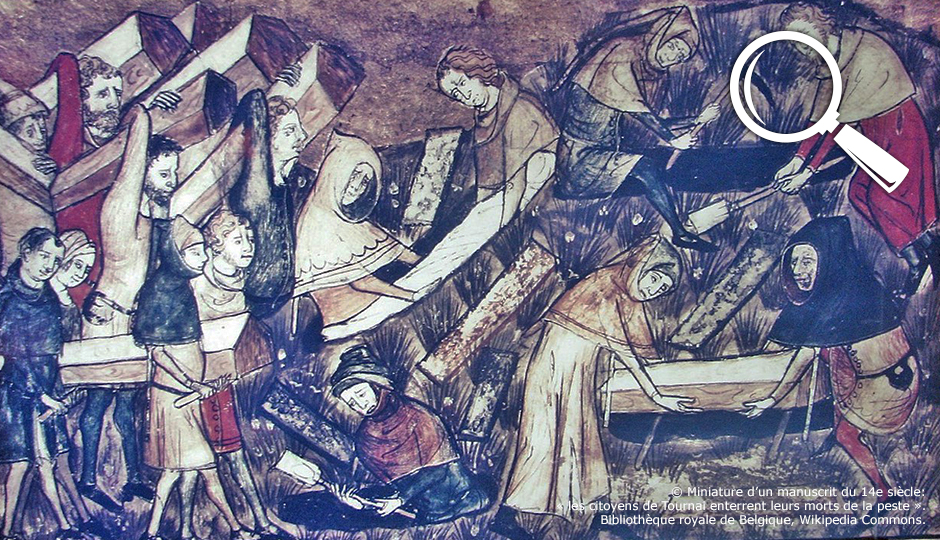Auteur : Agence Science Presse - Rabéa Kabbaj
Among all the rumours that come and go about the pandemic, there’s one that keeps coming back: the one that says that COVID-19 has been manufactured in a laboratory in China. Nothing’s new here, as similar theories have circulated during important epidemic periods in history.
As we have already wrote on; scientists worldwide have decoded thousands of different genomes of SARS-CoV-2, the virus COVID-19 originated from, and their conclusion is that it has a natural origin. This information doesn't stop millions of people from believing that Chinese scientists voluntarily created the virus or negligently let it escape from a laboratory.
Every epidemic has its theory
This type of theory, however, is not unique to this pandemic. According to Patrice Bourdelais, from the School for Advanced Studies in the Social Sciences, with every epidemic throughout history comes scapegoating. ''At the time of The Black Death (1347), Jews were accused of poisoning wells and markets. It led to violent massacres in the Strasbourg area and what is now the South of Germany,'' he said in an interview.
There was a hunt for a culprit during the European cholera epidemics in the 19th century. Strangers were pointed at and accused of poisoning wells and market stalls. In France in 1832, things got more complicated, according to Patrice Bourdelais. People opposed to the monarchy and poor people accused the upper class to have spread the virus in order to kill them. Some of them falsely accused the doctors to have encouraged the epidemic to get their hands on corpses because it was the era where dissection became an important part of medical research.
Almost a century later, the Spanish flu, which happened at the end of World War I, also had its fair share of conspiracy theories. The French thought the German tried to poison them and vice versa.
More recently, some theories claimed that AIDS was created in a laboratory. ''Many people accused both the Russian and American secret services. Many also thought it was a poisoning attempt gone wrong,'' explains Mr Bourdelais.
More recently, during the H1N1 pandemic of 2009, rumours circulated in the United States that Mexican migrants were vectors of the disease. Shawn Smallman, professor in international studies at Portland State University, debunked the myth that aggravated discrimination against Mexican workers. Conservative commentators even suggested that Mexicans were bringing the virus with them in order to destroy the United States.
On the other side of the pond, a study conducted during the H1N1 pandemic amongst the French-speaking population of Switzerland revealed distrust towards the media, suspected to withhold information due to pressure from the government as well as pharmaceutical companies.
The Ebola epidemic that struck Western Africa in 2013 generated many rumours. In Liberia, some communities showed hostility towards health workers. They were worried that their children would be used as guinea pigs in clinical trials for vaccines. People also believed that the Liberian government exaggerated the reality of the epidemic to gain more international financing.
Is there a denial of the problem?
According to Patrice Bourdelais, this consistency, throughout centuries, has something anthropological. ''Apparently, humans can’t cope with the fact that nature can send them such a nuisance that doesn’t originate from them,'' reveals the historian. ''Historically, we attributed it to divine intervention: God sent us this scourge because we misbehaved. Today, with the medical and scientific progresses that we made, it is hard for people to believe that we can't stop the epidemic and we deal with a virus we have no control over. It makes them look for a guilty party.''
As of this day, a third of Americans and more than a quarter of the French population believe that COVID-19 was fabricated in a laboratory.





